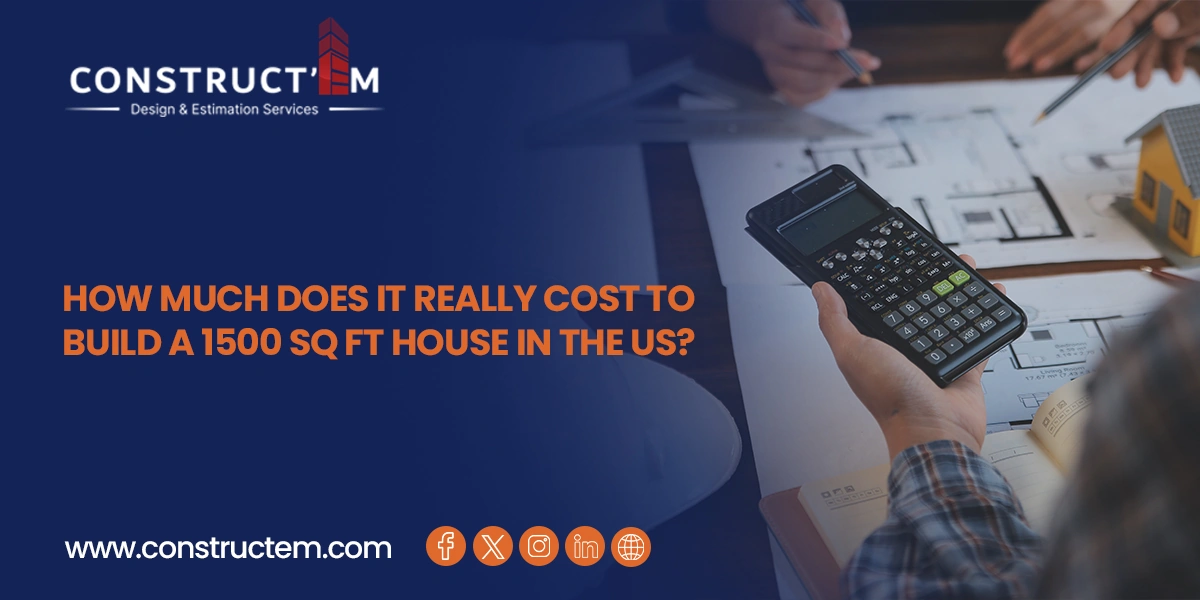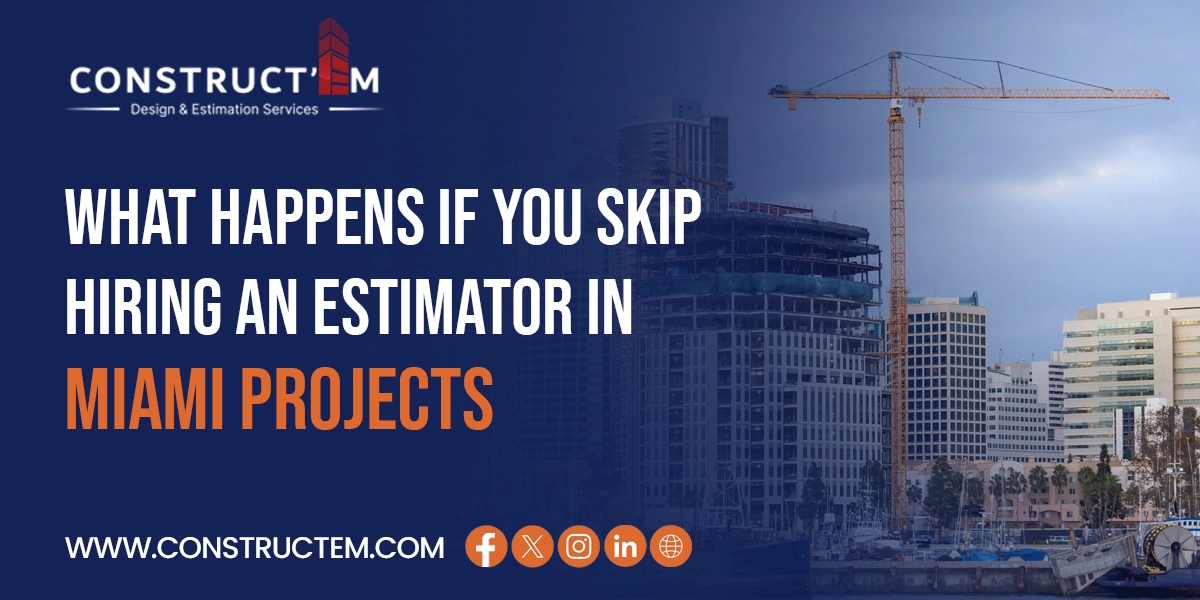

What Happens If You are Planning a construction project in Miami this year? Maybe a cozy family house in Little Havana or a modern duplex in Brickell? Either way, one question always comes first “How much will it cost to build?”
Estimating construction costs isn’t just about guessing numbers. In Miami, it’s about understanding the local rules, the weather, and how fast material and labor prices are changing in 2025. A single miscalculation can stretch your budget thin or delay your dream project.
But don’t worry, this guide will help you make sense of everything. We’ll go over the real costs, the factors that shape them, and how cost estimating services or the best construction estimator in Miami can save you from expensive surprises.
Getting a clear idea of your construction costs isn’t just helpful; it’s what keeps your whole project running smoothly. Without it, things can quickly go wrong.
Here’s why it really matters:
In simple words, a solid estimate is like a roadmap for your build. Accurate cost estimation doesn’t just help control spending—it also keeps your project on schedule. If you’re curious about how long a typical construction project can take, check out our blog How Long Does It Take to Build a House? Survey of 2025 for real-world insights.
Construction in Miami isn’t like other cities. The warm weather, coastal climate, and local regulations all play a big role in shaping your costs.
The cost of materials in 2025 varies with quality and supply. Basic builds average around $150 per square foot, mid-range homes around $400–$600, and luxury projects can go beyond $1,000 per square foot. Miami also requires hurricane-resistant materials, concrete blocks, steel framing, and impact-proof glass, which add to the total.
Miami’s booming construction scene means skilled workers are in high demand. Electricians, plumbers, and masons can charge more, and scheduling delays are common. A simple project might stretch by weeks if labor isn’t available on time.
A minimal design is cheaper than one with custom finishes, complex layouts, or high-end features. Even changing small design details mid-project can lead to price jumps.
Building costs differ across Miami. Areas like Coconut Grove or Coral Gables may have higher permitting fees or stricter codes than suburban zones.
Miami has its own building personality, which means it is vibrant yet strict. The city’s building codes focus heavily on safety, durability, and flood resistance.
For example, homes built near the coast often need elevated foundations or reinforced structures, which can raise costs by 10–20%. Many homeowners also invest in impact windows and weatherproof roofing, both now considered standard for new builds.
Another thing to keep in mind is the humidity. It affects paint, flooring, and even drywall quality. Choosing moisture-resistant materials may seem like an extra cost upfront, but it prevents long-term damage, something locals know all too well.
These details might sound small, but they can easily swing your estimate by thousands of dollars.
Here’s where things can get tricky. Miami’s building regulations are some of the strictest in Florida. To start any project, you’ll need a building permit, which depends on your project’s value. For example, residential permits typically cost about $0.22 per $100 of the estimated project cost, with a minimum fee of around $26.
If your plot lies in a flood zone, you’ll also need additional drainage systems or elevation work, not optional. And don’t forget hurricane codes; ignoring them isn’t just risky, it’s illegal.
That’s why working with someone experienced, like the best construction estimator in Miami, is a smart move. They already know how to navigate the paperwork, estimate the hidden fees, and make sure your project doesn’t hit legal roadblocks.
These days, estimating costs is way simpler thanks to new tools. You don’t have to do all the math by hand anymore; software can do most of it for you and give you real numbers based on Miami’s market.
Here are a few useful ones:
These tools save a lot of time and make your estimate more accurate. But even the best software can’t predict everything — like delays, weather, or permit issues. That’s why it’s always smart to get help from cost estimating services or a professional construction estimator in Miami who understands how things really work on-site.
Common Mistakes That Blow Budgets
Even experienced builders get caught off guard by costs sometimes. Here are a few traps you’ll want to avoid:
Avoiding these pitfalls is the real secret behind staying on budget.
Let’s make it simple.
Start by defining your project scope, such as how big, how fancy, and where in Miami. Then collect local cost data, talk to suppliers, or use cost databases. Next, use estimation software or manual methods to total your materials and labor.
Once you have a draft budget, share it with a professional estimator. They’ll fine-tune it, account for Miami’s local conditions, and catch any missing costs you might overlook. Finally, add a contingency fund for weather delays or market price spikes.
This process keeps your estimate solid, realistic, and ready to present to investors, contractors, or even banks if you’re financing your project.
Building in Miami is exciting, but it’s not for the unprepared. Between strict regulations, unpredictable weather, and fast-moving material prices, your estimate can make or break your project.
Start with ConstructEm, use the right tools, and get guidance from professionals who understand Miami’s construction scene. A good estimator doesn’t just predict costs; they protect your project from the unexpected.
So, whether you’re dreaming of a beachfront home or a downtown duplex, make sure your first step
Average costs range from $250–$450 per sq. ft, depending on design, materials, and location. Professional cost estimating services ensure a more accurate budget.
A construction estimator in Miami uses local data and labor rates to create accurate budgets, avoid hidden costs, and keep your project on track.
Anywhere between $150 – $1,200 per square foot, depending on the type and finish of your project.
If accuracy matters, absolutely. They make sure your numbers reflect real market conditions, not online guesses.
Software helps, but nothing beats local experience. Combine both for the best results.
© Construct'EM - 2026. All rights reserved.